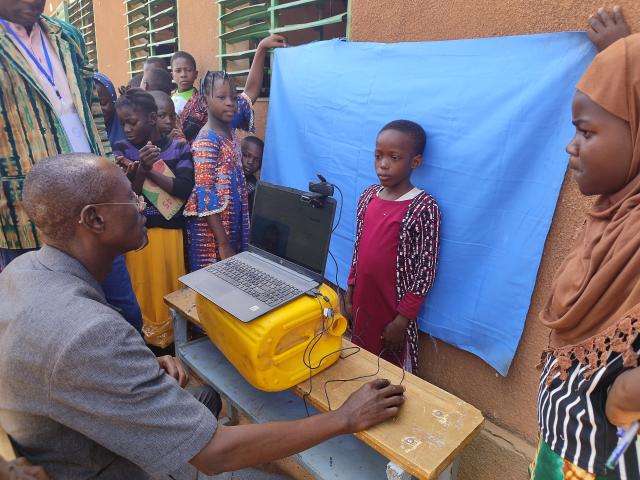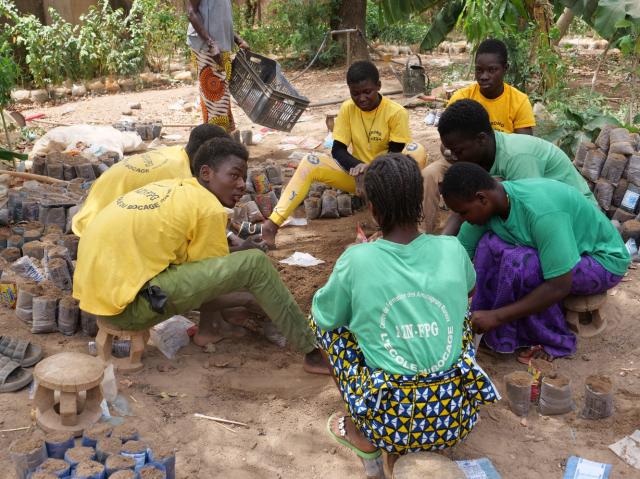Research and innovation project for productive, resilient and healthy agropastoral systems in West Africa (PRISMA)
In execution

Preview
Donor(s)
- European Union
Implementation period
01.01.2022 - 31.12.2025
Total duration
48 months
Project objective
The overall objective of the project is to contribute to an agroecological transformation of agropastoral systems adapted to climate change in order to make them more productive, resilient and healthy for animals, humans and the environment.
Specifically, this project cofounded by the European Union and AECID, and implemented by Enabel, LuxDev and AECID, aims to:
- improve availability and access to pastoral resources through sustainable management practices adapted to climate change, tested by research and known by technical and social actors;
- improve the availability of and access to quality livestock feed at the regional level, through better production and distribution organisation;
- limit the risks to human health associated with the consumption of local milk through better control of zoonoses;
- ensure coherent consultation with the main influential and potentially impacted stakeholders and initiate a dialogue with decision-makers to improve sectoral policies.
Project intervention strategy
The project aims to promote the consideration of climate change issues, the securing of pastoral systems and agropastoral development in the various policies by supporting regional orientations and the construction of a shared vision of mobile pastoralism systems in West Africa, particularly in the ECOWAS zone. It will also make contributions to complement and synergise with various regional research and development projects.
By aiming to produce applied research results, PRISMA is in line with the support of regional orientations. It is based on a participatory and multisectoral approach, involving North-South partnerships, and relies on a strong mobilisation of local public and private operational structures. The aim is to valorise the results of the research by local actors and policy makers.
In other words, the intervention strategy comprises three stages:
- the production of knowledge, resulting from research work (capitalisation, action research), which will be used to strengthen the skills of local actors;
- the scaling up of innovations and good practices analysed and validated by local actors;
- the dialogue of the main results and recommendations of the research with political decision-makers, which will allow them to be taken into consideration in order to orient sectoral policies.
Specifically, regarding improving pastoral resource management and adaptation to the effects of climate change, PRISMA will capitalise on pasture restoration and management initiatives, significant alternatives to the exploitation of pastoral resources, and carbon credit mechanisms to enhance mitigation/mitigation initiatives in agropastoral settings and promote their scaling up. Enabel and LuxDev are responsible for the implementation of this specific objective 1 of PRISMA; each agency has specific activities (Enabel for pastoral resource management and LuxDev for carbon credit mechanisms). However, given the context of growing insecurity in the Sahel, the project will adapt to this context by adapting its areas of investigation if necessary.
Regarding the improvement of access to feed, this specific objective 2 is implemented by AECID and will consist in improving the feed distribution network through storage banks. It will also involve strengthening the production of quality feed for livestock and putting in place efficient mechanisms to make feed available, especially during the lean season, through index insurance systems and technical support for production and estimation of import needs.
With regard to the limitation of zoonoses in the dairy sector, this objective 3 of the project is implemented by Enabel. It will provide data on the prevalence of tuberculosis and brucellosis and strengthen the capacity of epidemiological surveillance networks. The project will collaboratively diagnose access to epidemiological information by dairy stakeholders, facilitate co-creation and pilot innovative solutions for prevention or management of zoonotic diseases in the dairy sector.
Finally, regarding the contribution to national and regional sectoral policies and strategies, PRISMA will facilitate consultation between various actors, policy dialogue, information awareness/training, sharing in high-level events. This fourth objective of PRISMA is jointly implemented by the three agencies to ensure consistency in achieving results.
PRISMA will set up three thematic groups linked to the three components (pastoral resource management and climate change; livestock feed; prevention and control of zoonoses). Each partner will provide leadership for a given theme: LuxDev for pastoral resource management and climate change, Enabel for prevention and control of zoonoses and AECID for livestock feed. These thematic groups will be frameworks for discussion and sharing of action research results.
The three implementing agencies are assisted by a Strategic Orientation Committee as an advisory body.
Budget
Total budget
EUR 1,200,000
Contribution breakdown
-
EUR 1,200,000
European Union
Documentation

- Project factsheet
Research and innovation project for productive, resilient and healthy agro-pastoral systems in West Africa
Explore more
LuxDev implements other projects and programmes in the same country or sector.
All projects-

In execution Burkina Faso
Support programme to implementation of the Education and Training Sector Plan (PSEF)
Education, vocational training and employment
Support programme to implementation of the Education and Training Sector Plan (PSEF) -

In execution Burkina Faso
Support to the sustainable management of the forest resources
Agriculture, forestry and fishery
Support to the sustainable management of the forest resources -

In execution Burkina Faso
BenkadiBaara – All together for youth employment!
Education, vocational training and employment
BenkadiBaara – All together for youth employment!


